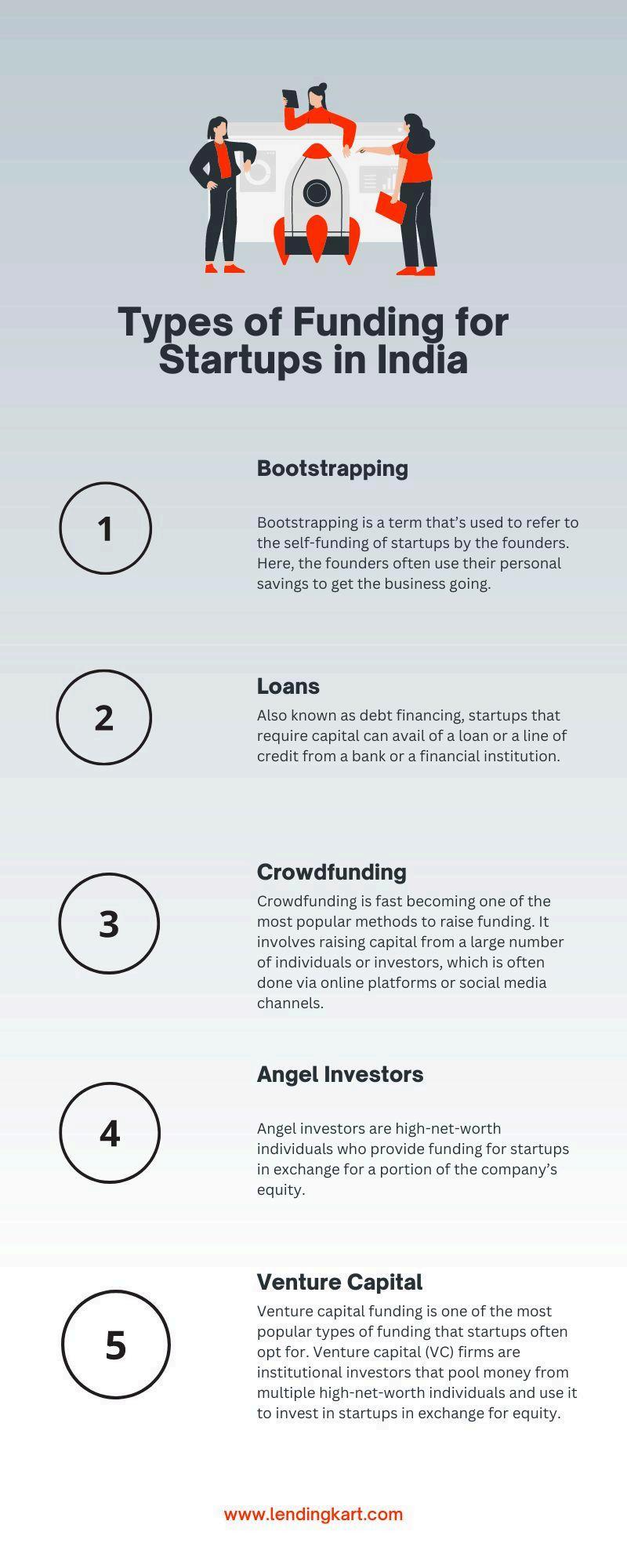The startup ecosystem in India is going through a bullish run The country is witnessing a surge in the number of entrepreneurs, with many new-age companies coming up with unique propositions to solve a plethora of problems and issues However, one of the major challenges that startups deal with is securing adequate capital to fuel their development and growth.
While many choose unsecured business loans to meet their capital needs, some companies opt for other sources. In this article, we’re going to be looking at what startup funding is, how crucial it is to the company’s growth and the various types of funding options
Why Funding is Required by Startups
Starting a company and getting it past the business idea phase requires a tremendous amount of capital Securing startup funding is often a crucial milestone for startups, as it provides the necessary capital to execute their vision and propel growth It enables them to bridge the gap between the ideation and commercialisation of their products and solutions.
This need for funds, however, doesn’t go away even after the startup is up and running In fact, that’s when the company needs access to a steady stream of funding. Business expansion, talent hire, customer acquisition and product marketing are all resource-intensive activities that require significant capital. Without startup funding, new companies cannot survive, compete or thrive in the dynamic business landscape of India

Benefits and Downsides of Each Type of Funding
Knowing what the various advantages and disadvantages of the different types of funding for startups are is crucial to making informed decisions Let’s begin with the benefits first
Benefits of Startup Funding Methods
1. Bootstrapping
Since founders use their own capital, they retain complete control over their company. Also, they don’t have to go through an extensive vetting and due diligence process, which is often the case with other startup funding methods
2 Loans
Loans and debt financing also enable startups to gain access to capital without diluting their ownership. By opting for startup loans in India, budding founders and entrepreneurs need not put their savings or capital at risk
3. Crowdfunding
Since crowdfunding involves borrowing small amounts of money from multiple interested individuals, it is considered one of the lowest-risk methods to raise capital Moreover, businesses can capitalize on the interest shown by the investors who crowdfund them.
4. Angel Investors
With angel investors, businesses can get access to capital in exchange for equity. In addition to financial support, angels also provide mentorship and networking opportunities
5. Venture Capital
Venture capital firms are financially strong and can provide large sums of capital in exchange for equity They help guide businesses during their growth phase and provide plenty of networking opportunities.
6. Series Funding
Series funding provides businesses the opportunity to raise capital during multiple stages of their business cycle Startups can raise capital as and when they achieve certain milestones Companies that are doing well and meeting their business objectives usually get a steady stream of capital.
Downsides of Startup Funding Methods
1. Bootstrapping
Bootstrapping may not work for capital-intensive businesses, as founders of startups often don’t possess the capital they require to turn their business ideas into reality
2. Loans
Startups that take out loans need to repay the borrowed amount in installments along with the interest component. Repayment of the loan may not be possible if the companies are not generating enough revenue.
3. Crowdfunding
Startups may not always be able to raise enough funds to successfully start a business through crowdfunding
4 Angel Investors
Since angel investors invest in very early-stage businesses, they often take up a sizable portion of the company’s equity. This dilutes the control the founder has over the company and makes it harder to raise more funds in the future
5. Venture Capital
Again, venture capital firms also take up significant equity in exchange for providing capital Additionally, VCs may exert a lot of control over the business operations and may even pressure the management to take unnecessary risks.
6. Series Funding
Startup founders lose equity and control each time they raise capital through a series of funding rounds

